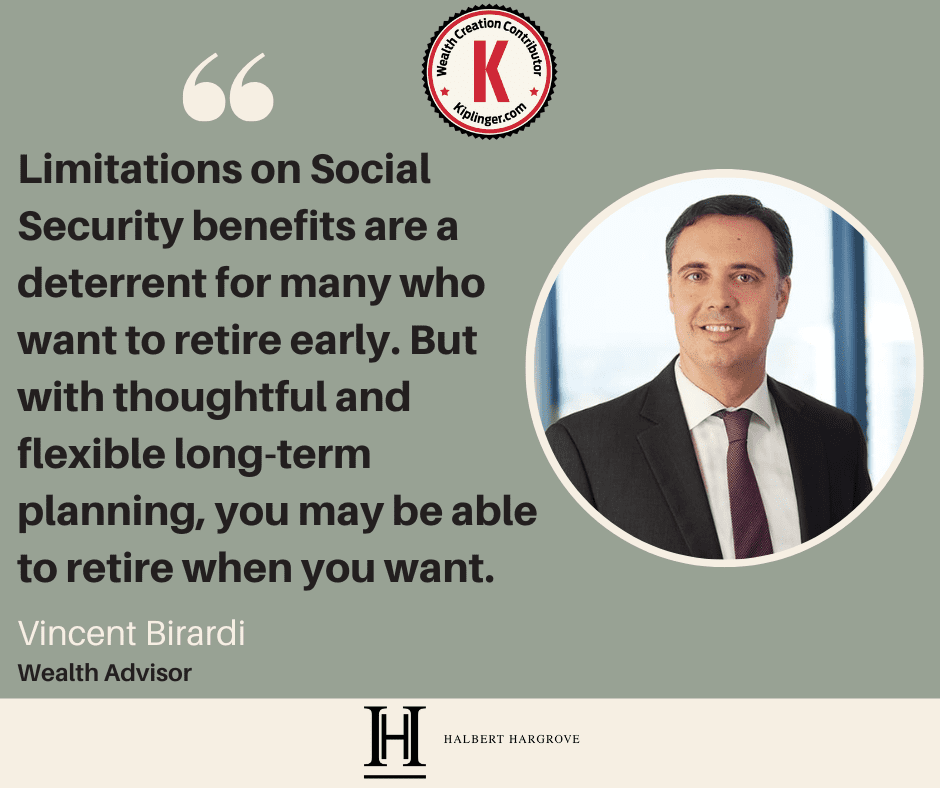By Vincent R. Birardi, CFP®, AIF®, Wealth Advisor featured in Kiplinger
Are you thinking of retiring soon? Perhaps earlier than you had planned years ago?
A potential hurdle could be the incentives set up by the Social Security Administration – they calculate your benefits to reward you for staying in the workforce.
But if you are looking to take an early retirement, you’re not alone.
In the first 15 months of the COVID pandemic (March 2020-May 2021), about 2.5 million Americans retired. That was about twice the number of people who retired in 2019.
This means there were essentially 1.2 million fewer people in the workforce over the age of 55 than would otherwise be expected.
First, find out what Social Security benefits you can expect
For anyone born in 1943 or later, your full retirement age, as defined by the Social Security Administration, is between age 66 and 67, based on your birth year. If you’re contemplating retiring before that, it’s important to know that the Social Security program has been orchestrated to incentivize beneficiaries to delay claiming benefits. Specifically:
- If you start taking benefits at age 62, your Retirement Benefit will shrink by 25% to 30%, depending on your birth year. That’s because your lifetime annual benefits are decreased by approximately 8% for each year prior to your full retirement age you start to claim them.
- Conversely, your lifetime annual benefits increase by 8% for each year past your full retirement year if you delay claiming them – until the month in which you turn age 70, at which time your benefit has grown as large as it can.
The Social Security Administration has created an easy-to-use tool for calculating your reduced estimated annual benefits if you choose to begin claiming your benefits before you reach your full retirement age; using this table, you can also view what you’d gain percentage-wise by postponing retirement.
Next, weigh your retirement security from four different perspectives
These limitations on Social Security benefits are a deterrent for many who want to retire early. But with thoughtful and flexible long-term planning, you may be able to retire when you want.


